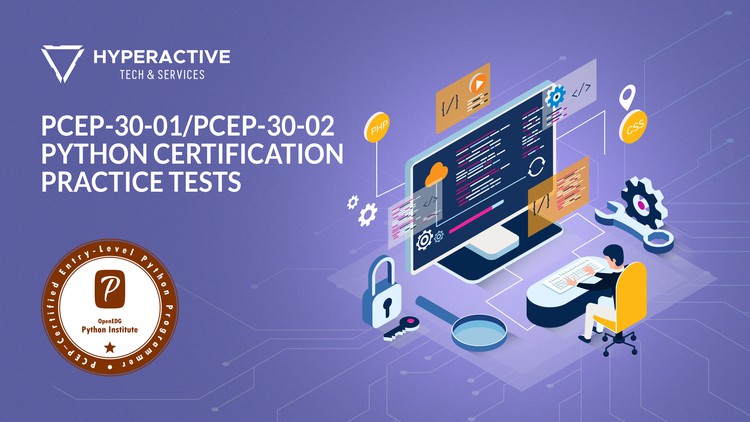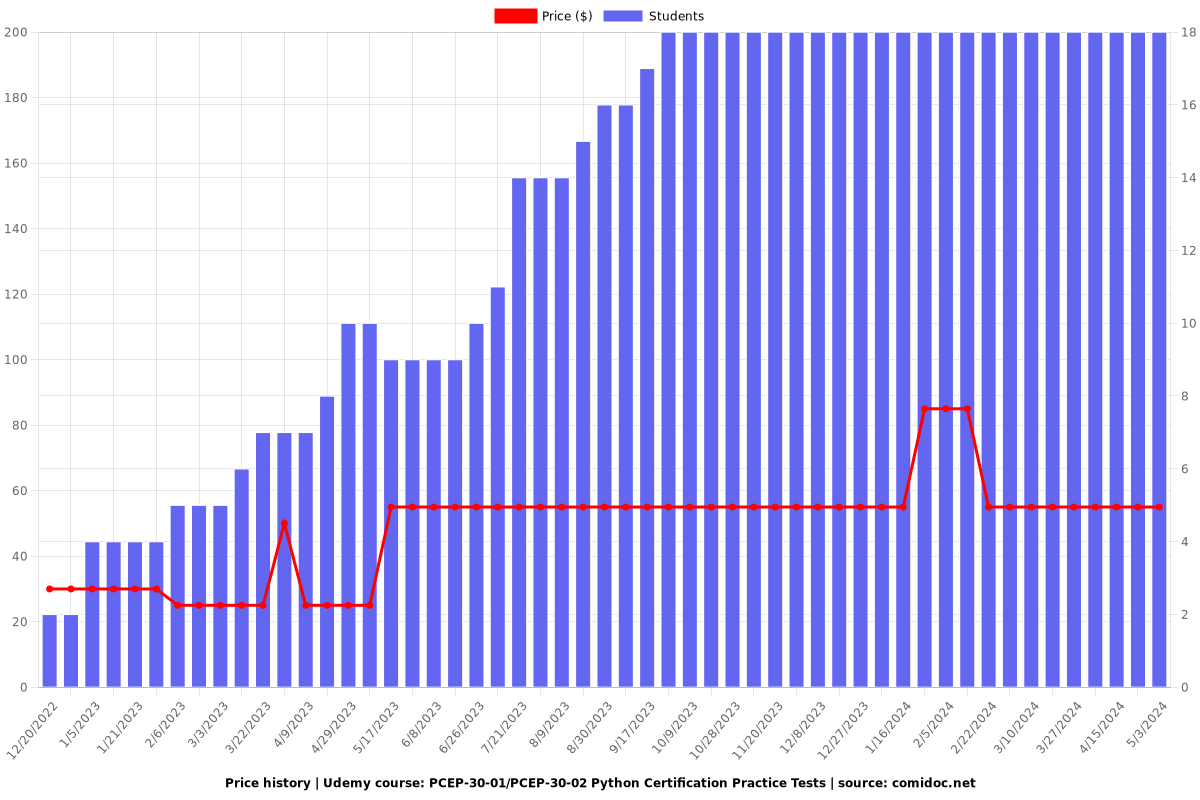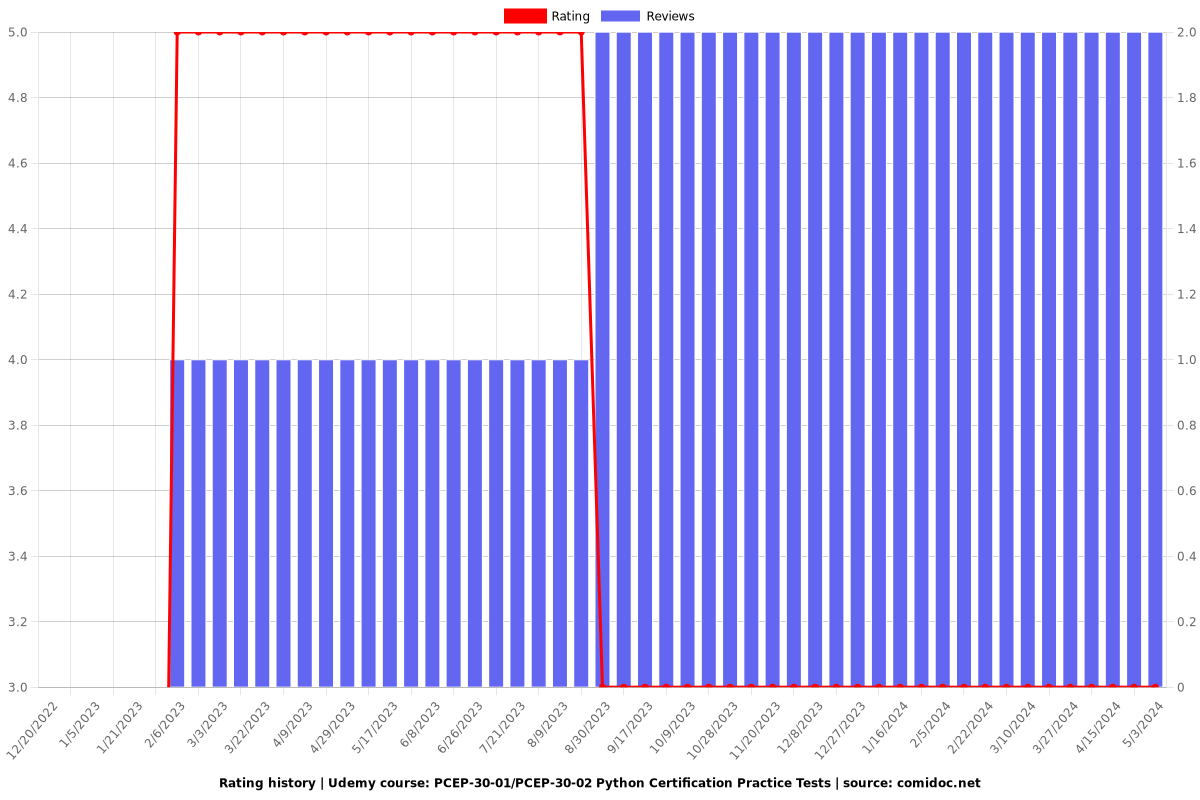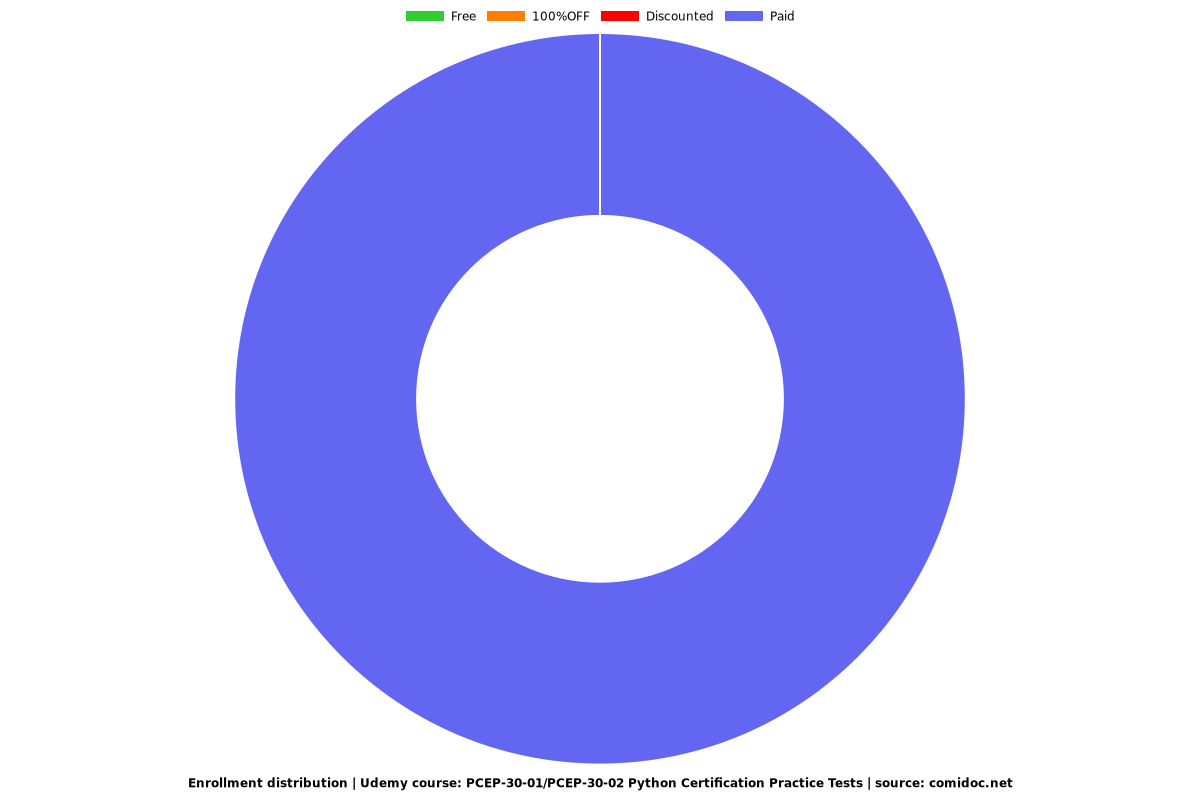PCEP-30-01/PCEP-30-02 Python Certification Practice Tests
[UPDATED] PCEP-30-01/PCEP-30-02 Python Certification Practice Tests - 2023

What you will learn
Get entry level knowledge of Python language
Learn practically how to set up a first program
Prepare to PCEP certification exam
Python basics as an entry to Data Science
Why take this course?
PCEP-30-01/PCEP-30-02: Certified Entry-Level Python Programmer
There are six Practice Tests with preparation questions from all knowledge areas
to prepare for the PCEP-30-01/PCEP-30-02 exams at the Python Institute.
Every question has an explanation and a Try-It-Yourself-Code
which you can run to better understand the topic.
You can download the Try-It-Yourself-Code for all questions.
(The download link will be in your welcome message.)
Exam Syllabus
Computer Programming and Python Fundamentals
Understand fundamental terms and definitions
interpreting and the interpreter, compilation and the compiler, lexis, syntax and semanticsUnderstand Python’s logic and structure
keywords, instructions, indenting, commentsIntroduce literals and variables into code and use different numeral systems
Boolean, integers, floating-point numbers, scientific notation, strings, binary, octal, decimal, and hexadecimal numeral system, variables, naming conventions, implementing PEP-8 recommendationsChoose operators and data types adequate to the problem
numeric operators: ** * / % // + –, string operators: * +, assignments and shortcut operators, operators: unary and binary, priorities and binding, bitwise operators: ~ & ^ | << >>, Boolean operators: not and or, Boolean expressions, relational operators ( == != > >= < <= ), the accuracy of floating-point numbers, type castingPerform Input/Output console operations
print(), input() functions, sep= and end= keyword parameters, int() and float() functions
Conditional Blocks and Loops
Make decisions and branch the flow with the if instruction
conditional statements: if, if-else, if-elif, if-elif-else, multiple conditional statements, nesting conditional statementsPerform different types of iterations
the pass instruction, building loops with while, for, range(), and in; iterating through sequences, expanding loops with while-else and for-else, nesting loops and conditional statements, controlling loop execution with break and continue
Data Collections – Tuples, Dictionaries, Lists, and Strings
Collect and process data using lists
constructing vectors, indexing and slicing, the len() function, basic list methods (append(), insert(), index()) and functions (len(), sorted(), etc.), the del instruction; iterating through lists with the for loop, initializing loops; in and not in operators, list comprehensions; copying and cloning, lists in lists: matrices and cubesCollect and process data using tuples
tuples: indexing, slicing, building, immutability; tuples vs. lists: similarities and differences, lists inside tuples and tuples inside listsCollect and process data using dictionaries
dictionaries: building, indexing, adding and removing keys; iterating through dictionaries and their keys and values, checking the existence of keys; keys(), items() and values() methodsOperate with strings
constructing strings, indexing, slicing, immutability; escaping using the \ character; quotes and apostrophes inside strings, multi-line strings, basic string functions and methods
Functions and Exceptions
Decompose the code using functions
defining and invoking user-defined functions and generators; the return keyword, returning results, the None keyword, recursionOrganize interaction between the function and its environment
parameters vs. arguments; positional, keyword and mixed argument passing; default parameter values, name scopes, name hiding (shadowing), the global keywordPython Built-In Exceptions Hierarchy
BaseException, Exception, SystemExit, KeyboardInterrupt, abstractive exceptions, ArithmeticError, LookupError along with IndexError and KeyError; TypeError and ValueError exceptions, the AssertError exception along with the assert keywordBasics of Python Exception Handling
try-except, try-except Exception, ordering the except branches, propagating exceptions through function boundaries; delegating responsibility for handling exceptions
Reviews
Charts
Price

Rating

Enrollment distribution
